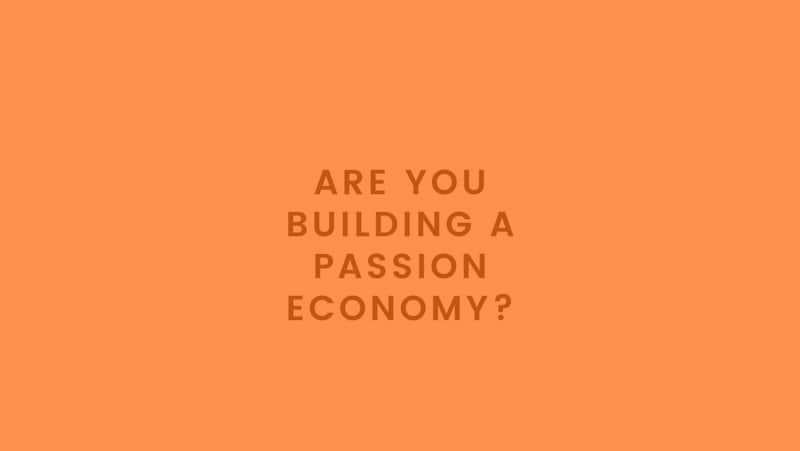
e-Residency Unlocks The Passion Economy
Follow your passion. Work on things that you like. Steve Jobs said it. Your favourite online guru said it. Yet, at least for my generation, it always felt like a stark choice between pursuing your passions or building (and studying for) a real career.
With the internet spreading throughout every corner of the world, the doors opened for us to showcase our talents in a way that wasn’t possible before.
But this did not lead us to the passion economy. Yes, you had new tools, reach, and leverage, but it still wasn’t possible to monetize your passion in a way that would support your life in a meaningful way. It wasn’t yet the time of the creators. It was time for the gig economy.
The gig economy is different because it’s mainly about repetitive tasks which buyers purchase through platforms like Fiverr and Upwork. It’s still commoditized work where the price is a decisive factor most of the time.
The gig economy has been great for many people. Both buyers and sellers. Buyers have gotten access to a better priced and a wider pool of talent. And sellers have gained an access to many buyers that enable them to live a life where they decide when they do the work and to what terms they agree to (ultimately decided by the market).
But the gig economy is not a passion economy.
Passion Economy
In a passion economy, it’s the workers who decide what kind of products and services they want to offer. They’re not fulfilling the order of the buyer. The worker becomes the creator. And now, with the rise of NFTs (non-fungible tokens), it has become possible for creators to monetise their content in a way it has never been possible before.
It’s no longer about doing more tasks to earn more money (like you do in a gig economy). It’s about growing and nurturing a relationship with your audience. Take OnlyFans as an example. You start off and have 10 subscribers in week one. The next month, you’ve grown your audience to 500. You’re still producing the same amount of content, but you’ve grown your audience substantially, and hence earning more through the subscriptions. More work doesn’t necessarily mean more money. But better relationships do.
And what’s interesting is that the creator is no longer marketing to the prospects to make sales. It’s actually the other way around – prospects are ready to pay substantial amounts of money to get the attention of the creator. This is what is happening on OnlyFans, and this is also happening with NFTs.
With NFTs, creators can issue unique one of a kind token which represents ownership of a piece of content (artwork, music, etc). What we’ve seen now is that superfans are willing to pay a lot of money to purchase these tokens both for future profits and to get the attention of the popular creator.
And by doing that, these superfans are identifying themselves – you no longer have to find and qualify your prospects and fans. You’re no longer seeking to capture their attention, but they’re trying to capture your attention.
Internet is the playing field for the online games we all play, and attention is the currency. It’s a valuable currency. Attention trumps credibility. Your Twitter, social media and blog are driving the career opportunities. If you can get attention, you’ll have more opportunities than you ever imagined. With NFTs, it’s possible to monetise the attention and opportunities you’ll have.
And the key thing to understand is that it’s not an optional thing anymore. We all have to play to be successful. We have to be good marketers, and we have to take the risk of putting ourselves out there.
That’s one of the downsides of the passion economy. You as a creator are the product. And if people reject the product, it means they’re rejecting you. This is a painful experience and there will be many heartbreaks, as the best creators will get almost all the attention.
As a result, it’s going to be really important for people to find out what they’re natural at. Otherwise, it won’t be possible to compete with the best.
Passion Economy And e-Residency
As the passion economy has arrived, and NFTs have opened a whole new way for creators to make a living, it’s easy to forget the legal side of doing business. Many people will run into taxation issues and being legally liable for the products they put out the world. This will create many complications that are going to be difficult to solve as an afterthought. Entrepreneurs form limited liability companies for a reason.
The e-Residency platform is perfectly suited for this new passion economy. It enables creators to stay true to their nature as an artist, but mix it up with entrepreneurial savviness of taking care of their liability & taxation matters.
E-residency enables doing that with the least amount of effort.
If you have any questions about starting your e-Residency company, don’t hesitate to reach out to us.